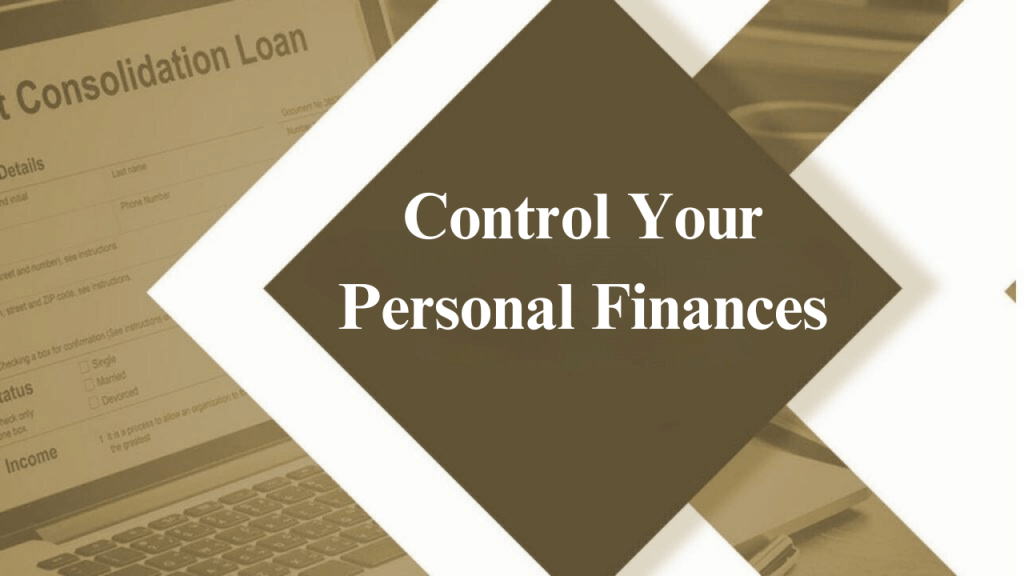
The economic downturn from the pandemic has made a lasting impact on people’s personal finances, with many having job losses and debt. Now that things are more stable, it’s time to take charge of your personal finances for real this time.
Take control of your money and never feel overwhelmed again! It’s easier said than done, so I’m here to provide five expert tips that’ll help you learn how to manage and grow your funds.
You’ll be able to keep track of how to use funds and save as much money as possible in order to bounce back in the event of another economic downturn.
Follow these tips and you’ll soon have control of your personal finances.
Why is it important to have control over your personal finances?
Personal finance involves managing your money to reach individual financial objectives, typically over a lengthy time period – your entire life essentially.
It’s essential to manage your finances if you want to live a secure and independent life, whether that means planning for retirement or saving up for a car.
Gaining control of your finances can be very beneficial.
By taking important steps, you’ll be able to prevent falling into credit card debt and have the security of being prepared for anything that comes your way in life.
5 expert tips to take control of your personal finances
Are you tired of stressing out every month when your bills arrive? Do you worry that there isn’t enough money to make ends meet?
To make matters worse, it’s hard to find reliable advice on how to manage your finances – but don’t worry, I’m here to help!
Finances can be overwhelming for a lot of people, especially those who haven’t been taught about budgeting and savings.
With just a few strategic steps, you can start taking control of your financial situation before you know it.
In this article, I’ll share five tips from experts that will help you take charge of your finances and set yourself up for long-term success.

Create a budget
Formulating a budget starts with taking stock of your income and expenses.
It’s critical to define your long and short-term financial objectives, so you understand how much to allocate towards savings.
Examining which categories you spend money on and how much you are spending can reveal areas where you should alter your spending in order to reach your objectives.
Use these guidelines when drawing up your budget.
Think about the 50/30/20 budget rule: Spend 50% of your after-tax income on necessities such as rent, food, and utilities, 30% on what you desire and 20% on savings.
See where you can reduce your expenses
To get a better handle on your finances, a great first step is to reduce your monthly costs.
You may not be able to cut down the fixed expenses, like rental fees or car payments, without changing your lifestyle profoundly; yet, you can reduce variable expenses, such as entertainment and clothing, by being flexible and frugal.
For instance, you can decrease electricity use to spend less on utilities, select different service providers for your home or life insurance, and get discounted food at bulk stores.
Find ways to bring additional income
Enhancing your financial security isn’t just about curbing expenses – you can also modify how (and in what amount) you make money.
Thanks to technology, there are a number of ways to generate extra income. Anything from perusing a hobby as a way to make money, starting a business on the side, and even monetizing as an artist — these opportunities are endless.
You can also make money in more conventional ways. If you have a job currently, are you able to negotiate an increase in salary? Can you get promoted?
On the other hand, if your job isn’t fulfilling, maybe it’s time to find something new. Identifying your ideal career path and following that up with a plan can also increase your income.
Build up your savings
Everyone should have an emergency fund. With savings, you won’t need to take out credit card debt when dealing with unexpected costs.
To begin your emergency fund, create an automatic savings plan and transfer whatever you allocated in your budget towards it out into a separate high-yield savings account that’s inaccessible. Alternatively, to get a better return, put the money into low-risk investments such as municipal bonds.
If you want to jump-start your savings, find methods of setting aside an extra $1000 quickly. Having a $1,000 cushion is great for handling unforeseen expenses and brings a lot of peace of mind.
Stick to your budget
Sticking to a budget can be the most difficult part because it requires some will power.
These tips below can help you stay in control of your money with stronger budgeting and decision making:
Be realistic – you may not be able to save 50% of each paycheck but figure out what percentage you can afford to regularly contribute.
It’s essential to plan ahead – when it comes to meals, outings and gift shopping, you can use deals and coupons to save money on your purchases.
Make it a team effort – involve your family or partner. Maintaining the budget will be more difficult if everyone isn’t on board.
Make a habit of automatically transferring a portion of your paycheck into your savings account.
Instead of using credit, pay in cash – studies have shown that people are more likely to buy more when they use credit since their mentality towards spending changes.
Final thoughts
In conclusion, if you are serious about getting your finances under control and in order, following these five expert tips is the best way to do it.
Taking a proactive approach to managing your money means being aware of where your money is going and taking steps to make sure it is being used wisely.
Creating a budget, reducing unnecessary expenses, and keeping an eye on your savings are all important steps when it comes to taking control of your personal finances.
Together, these strategies can help you make the most of your money while setting yourself up for long-term financial success.